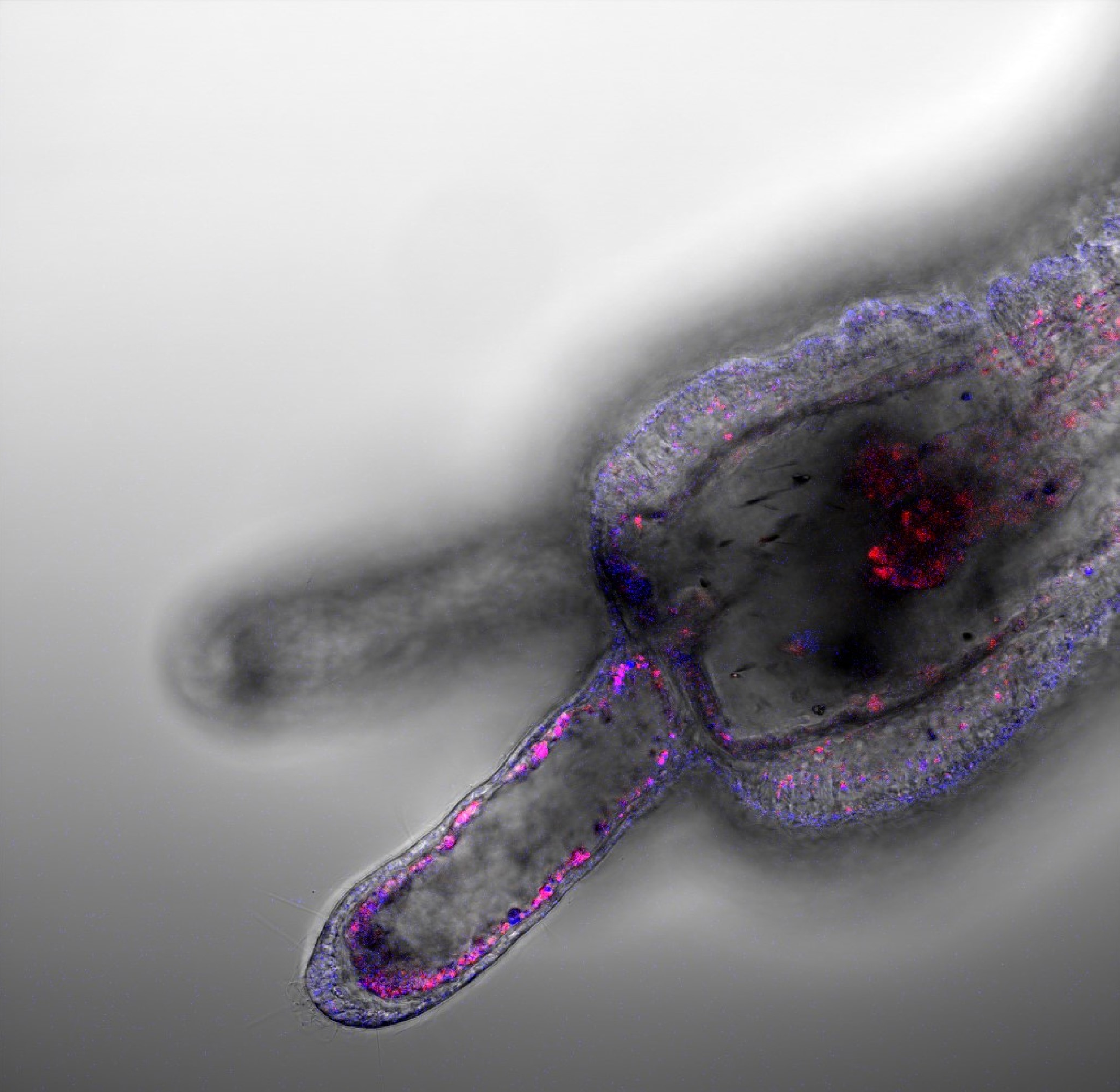 The Whitney Laboratory for Marine Bioscience
The Whitney Laboratory for Marine Bioscience

Whitney scientists Dr. Mark Q. Martindale and Dr. Sandra Loesgen, along with collaborators Dr. Laurie Gower from the UF Department of Materials Science and Engineering, Dr. Tommy Angelini from the UF Department of Mechanical and Aerospace Engineering, and Dr. Brian Wingender from the University of North Florida, were recently awarded a $2M grant from the National Science Foundation’s Integrative Biology (IntBio) program to understand fundamental aspects of biomineralization.
Animals such as corals, sea urchins, snails, and vertebrates can produce a dizzying array of minerals (e.g. bones, shells, reefs) with exquisite material properties, shapes, and sizes; all at ambient temperatures and pressures. Surprisingly little is known about the molecular control of these processes due to the paucity of experimentally tractable systems.
The research team of cellular, molecular, biochemical, structural biologists and soft matter physicists are studying these processes by manipulating a soft bodied animal that has never before made biominerals. This soft bodied animal is the starlet sea anemone, Nematostella vectensis, a cnidarian related to corals and whose development Martindale has studied for years.
"We hope to uncover universal rules that cells use to control their microenvironmental 'reaction spaces' and regulate the biomineralization process across animals," says Martindale. “From this knowledge we hope to generate biominerals new to man.”
The project will specifically study the role of post translational protein modification of biomineralizing proteins on their ability to biomineralize. The research team will utilize molecularly engineered transgenes expressing modified fluorescently tagged biomineralizing proteins from a wide variety of different animals including corals, mollusks, sea urchins, and even human bones and teeth. These transgenes will be microinjected into living fertilized sea anemone eggs and the proteins purified to assay their ability to promote mineralizing activity.
This research has the potential to generate biomineralizing species with unique properties that can be used for applications such as atmospheric carbon sequestration and boosting coastline resiliency. Biomineralization is a fascinating subject of interest to young and old students alike and progress on the project will be incorporated into Whitney Laboratory, UF, and UNF’s educational activities throughout North Florida.
Image: The tentacle of a one week old sea anemone expressing a coral biomineralizing protein (red) that was injected in its fertilized egg”